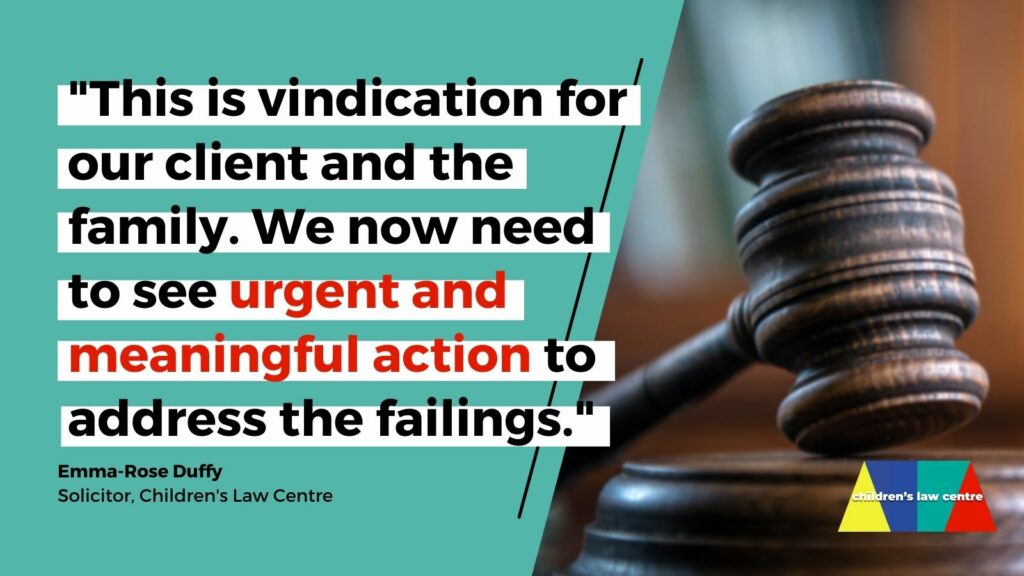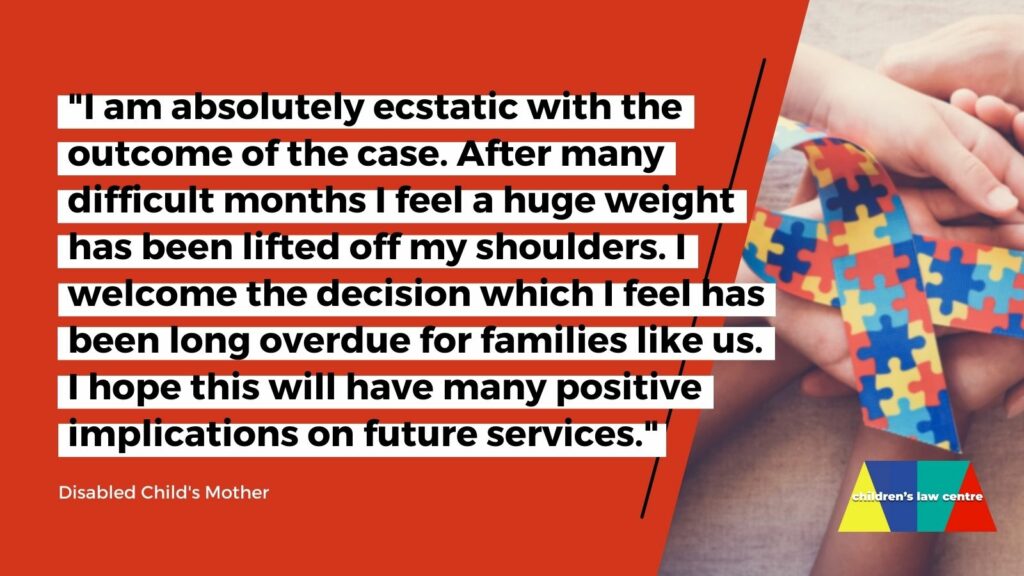10 September 2021
A severely disabled child, represented by the Children’s Law Centre, has been successful in a High Court challenge of the decision to repurpose temporary respite care facilities during COVID-19.
The decision to repurpose the facility was made in March 2020 at the beginning of the pandemic, leaving vulnerable children without essential care. Over 50 families are thought to have been affected by similar decisions across the five health and social care trusts.
Read the written judgment

Emma-Rose Duffy, Solicitor with the Children’s Law Centre said:
“Respite services are essential for families with disabled children. The issues around accessing temporary respite care have been long-standing and it is past time the systemic failures were dealt with and the lack of adequate facilities to meet children’s complex needs is fully addressed.
“The decision to repurpose vital respite care facilities during COVID-19 only worsened the situation during a time of heightened need.
“This is a welcome judgment that recognises the severe adverse impact suffered by our client as a result of the trust’s decision. Unfortunately, this is only one of the many similar stories where children with disabilities are unable to access vital temporary respite care and suffer as a consequence.
“This is vindication for our client and the family. The problems around a lack of respite facilities have been there for a long-time and we now need to see urgent and meaningful action to address them once and for all.”
The mother of the disabled child said:
“I am absolutely ecstatic with the outcome of the case. After many difficult months I feel a huge weight has been lifted off my shoulders. I welcome the decision which I feel has been long overdue for families like us. I hope this will have many positive implications on future services.”

Case Facts:
The child has severe autism with a severe learning disability, is non-verbal, displays extremely challenging behaviours and also engages in self-injurious behaviours. As a result of respite ceasing, and the lack of other support available, negative behaviours intensified and became even more difficult for the family to manage. Behaviours continued to intensify to the extent that both the child and parents sustained physical injuries. Mr Justice Humphreys ruled that the health trust was in breach of its statutory duty toward the child to provide the respite for the assessed need.
